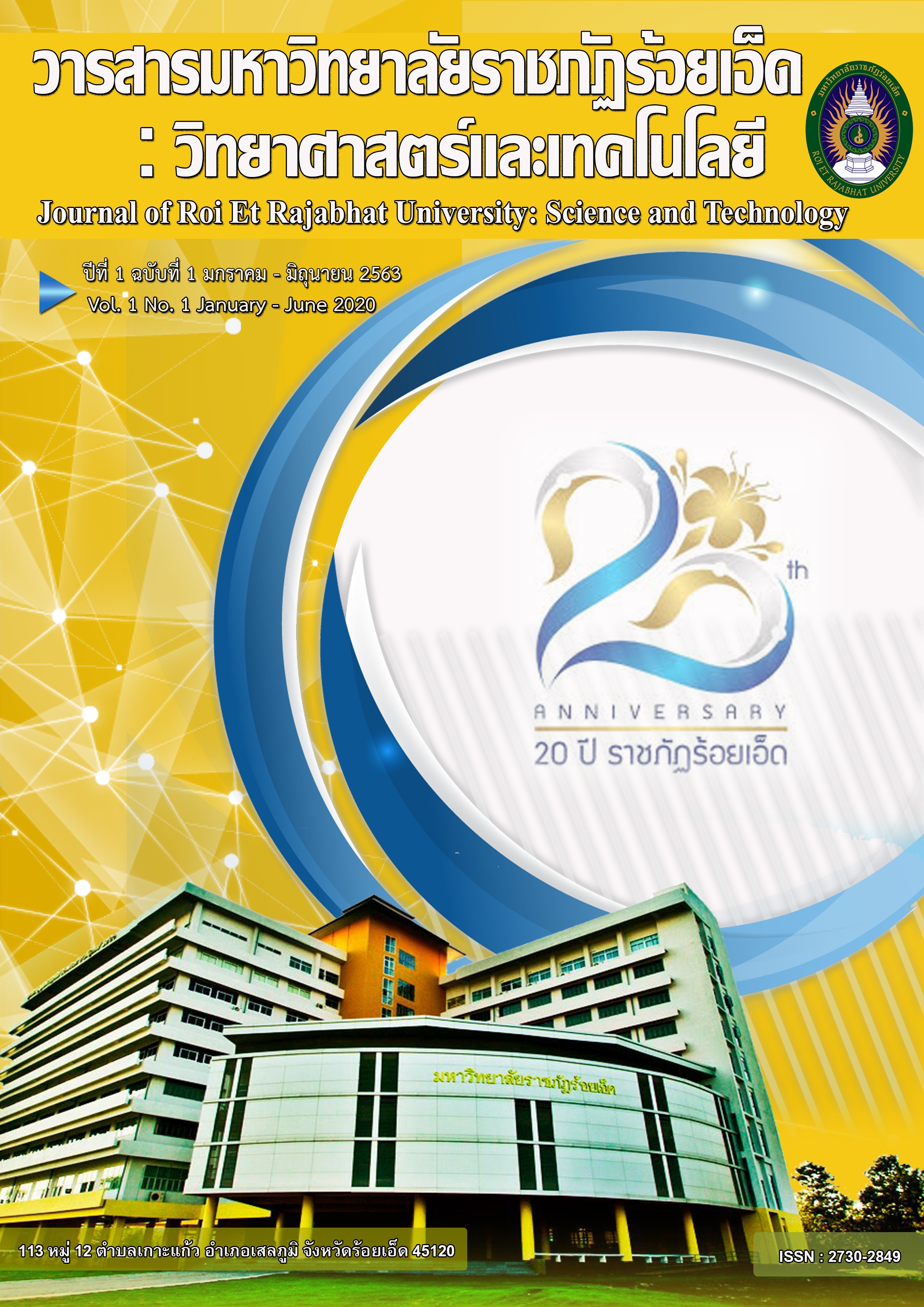Study to Preparation of Nano Silicon Carbide from Thai Jasmine Rice Husk and Durian Shell Charcoal
Keywords:
Durian rind charcoal, Silicon carbide, Silica, Rice huskAbstract
This research studied the synthesis of nano silicon carbide powder with the grinding of silica powder from rice husk and carbon powder from Durian rind charcoal with the ratio of 1:2 by weight then burned at 1300, 1400 and 1500 ⸰C under the atmosphere of argon gas for 1 hour. The samples were divided into 2 groups, which were 1st group using charcoal powder from Durian rind containing 68.73 percent carbon by weight and 2nd group using charcoal powder from the durian rind that has been soaked in hydrochloric acid, which contains 80.76 percent carbon by weight. The result of the X-ray diffraction (XRD), it shows that the carbon structure from charcoal soaked in hydrochloric acid will show more crystal. When preparing nano silicon carbide powder, it was found that the 1st group will result in the beta-silicon carbide (β-SiC) and alpha silicon carbide (-SiC) prominent structure when burned at 1300 °C. The image from the scanning electron microscope (SEM) found to be granular, with rounded edge an average size of about 50 – 100 nm, grouped together and looks like a line with a nanometer diameter distribution. In the 2nd group, when burned at a temperature of 1,400 °C, silicon carbide structure will be shown prominently. The X-ray diffraction pattern and morphology were like SiC. From the 1st group, it was shown that nano-silicon carbide powder could be prepared from both groups but using different firing temperatures. In which, samples prepared from non-soaked in hydrochloric acid charcoal produce silicon carbide structures at lower temperatures. Therefore, it is suitable to be developed to be able to prepare high volume nano silicon carbide powder with low cost.
References
Chonlada. R., Yuttapun. K., Papaporn. J. and Sirisup. K. (2017). Study the Effect of Molasses Ratio to Fuel Properties made from Mangosteen and Rambutan Shell. NSRU Science and Technology Journal, 9 (10), 79-90. (In Thai)
Haijuan. Z., Na. Z., Dan. W., Zhiqiang. W., Shuxian. B., Baojun. M. and Wanyi. L. (2019). Controlled synthesis of β-SiC with a novel microwave sintering method. Materials Letters, 255, 15 November, 126586 Maria. S., Sergio. G., Carmela. S., Pierpaolo. I., Sabrina. P., Carmela. B. and Claudia. C. (2019). Dopamine sensor in real sample based on thermal plasma silicon carbide nanopowders. Journal of Physics and Chemistry of Solids, 131, 213-222.
Janghorban. K. and Tazesh. H. R. (1999). Effect of catalyst and process parameters on the production of silicon carbide from rice hulls. Ceramics International, 25 (1), 7-12.
Omidi. Z., Ghasemi. A. and RezaBakhshi. S. (2015). Synthesis and characterization of SiC ultrafine particles by means of sol-gel and carbothermal reduction methods. Ceramics International, 41(4), 5779-5784.
Patompong. C., Thunyalux. J., Konkanok. Y. and Nattanicha. C. (2018). Study on the Synthesis of Nano-Silicon Carbide Powder from Rice Husk in Roi Et. In The 2nd National and International Conference on Educational and Technology 2018 ICET II: Critical Innovation. (pp. 2-10). Roi Et, Thailand
Qamar. A., Mahmood. A., Sarwar. T. and Ahmed. N. (2011). Synthesis and characterization of porous crystalline SiC thin films prepared by radio frequency reactive magnetron sputtering technique. Applied Surface Science, 257(15), 6923-6927.
Wang. F., Xiang. D., Wang. Y. and Li. J. (2017). Rapid synthesis of SiC powders by spark plasma-assisted carbothermal reduction reaction. Ceramics International, 43 (6), 4970-4975.
Downloads
Published
How to Cite
Issue
Section
License
บทความที่ได้รับการตีพิมพ์เป็นลิขสิทธิ์ของคณะศิลปศาสตร์และวิทยาศาสตร์ มหาวิทยาลัยราชภัฏร้อยเอ็ด
ข้อความที่ปรากฏในบทความแต่ละเรื่องในวารสารวิชาการเล่มนี้เป็นความคิดเห็นส่วนตัวของผู้เขียนแต่ละท่านไม่เกี่ยวข้องกับมหาวิทยาลัยราชภัฎร้อยเอ็ด และคณาจารย์ท่านอื่นๆในมหาวิทยาลัยฯ แต่อย่างใด ความรับผิดชอบองค์ประกอบทั้งหมดของบทความแต่ละเรื่องเป็นของผู้เขียนแต่ละท่าน หากมีความผิดพลาดใดๆ ผู้เขียนแต่ละท่านจะรับผิดชอบบทความของตนเองแต่ผู้เดียว






